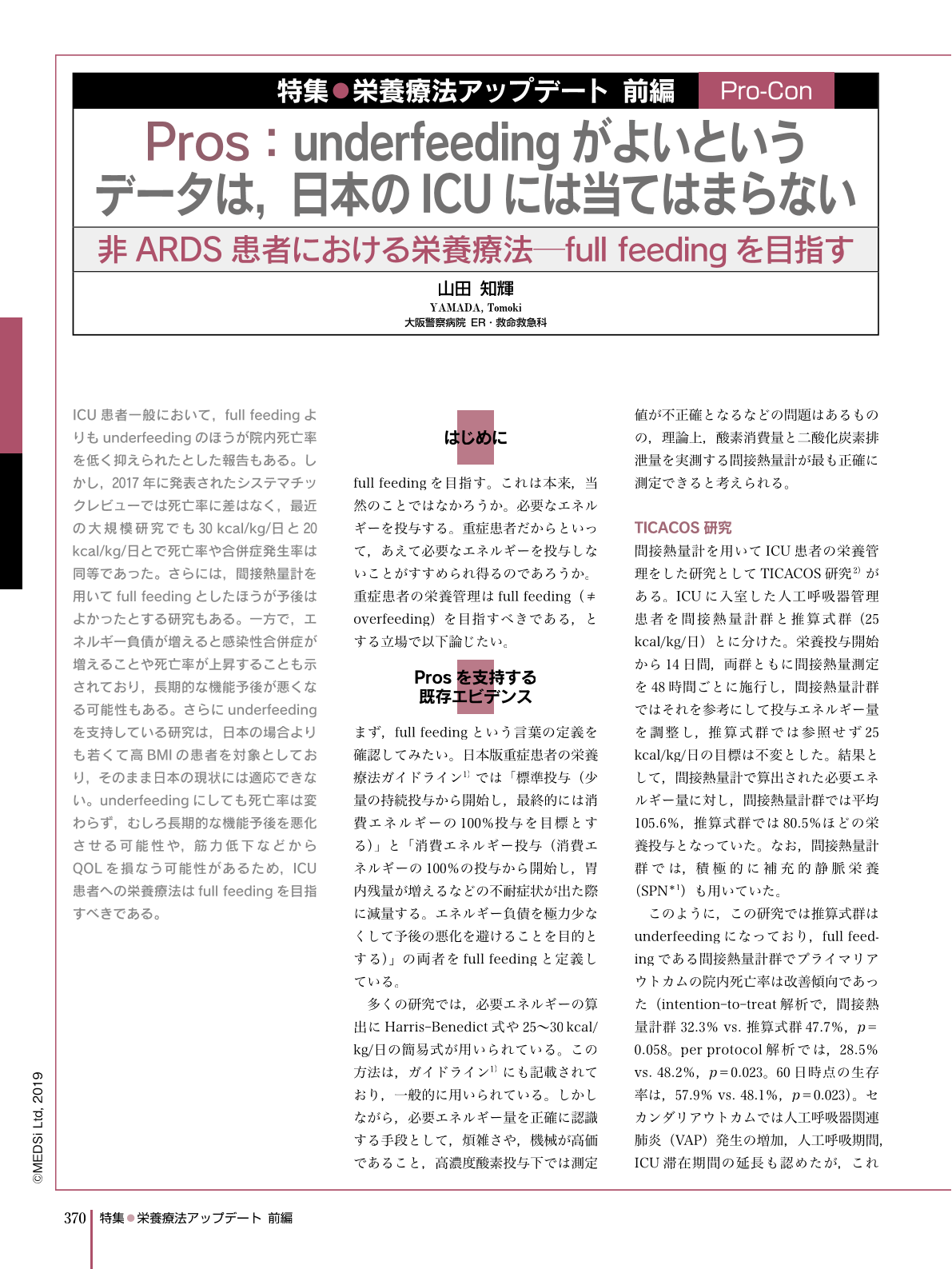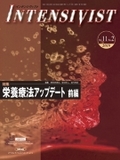Japanese
English
- 有料閲覧
- Abstract 文献概要
- 1ページ目 Look Inside
- 参考文献 Reference
ICU患者一般において,full feedingよりもunderfeedingのほうが院内死亡率を低く抑えられたとした報告もある。しかし,2017年に発表されたシステマチックレビューでは死亡率に差はなく,最近の大規模研究でも30 kcal/kg/日と20 kcal/kg/日とで死亡率や合併症発生率は同等であった。さらには,間接熱量計を用いてfull feedingとしたほうが予後はよかったとする研究もある。一方で,エネルギー負債が増えると感染性合併症が増えることや死亡率が上昇することも示されており,長期的な機能予後が悪くなる可能性もある。さらにunderfeedingを支持している研究は,日本の場合よりも若くて高BMIの患者を対象としており,そのまま日本の現状には適応できない。underfeedingにしても死亡率は変わらず,むしろ長期的な機能予後を悪化させる可能性や,筋力低下などからQOLを損なう可能性があるため,ICU患者への栄養療法はfull feedingを目指すべきである。
The appropriate caloric intake for critically ill patients remains unclear. One study showed permissive underfeeding for critically ill patients may be associated with lower mortality rates compared with full feeding, but a recent systematic review showed that full feeding appear to provide equivalent short-term outcomes. Most recent large RCTs reported that the rate of survival and infection associated with underfeeding for enteral nutrition was not higher than that for full feeding nutrition in patients undergoing mechanical ventilation. Another study demonstrated a trend toward a lower mortality in the full feeding group using indirect calorimetry. However, some studies suggest that a large negative energy balance seems to be an independent determinant of ICU mortality and rate of infectious complications. We recommend that critically ill patients receive full feeding, because mortality does not change comparing underfeeding and full feeding and there is a possibility of worsening the long-term functional prognosis and possibly impaired quality of life due to muscle weakness.

Copyright © 2019, MEDICAL SCIENCES INTERNATIONAL, LTD. All rights reserved.


